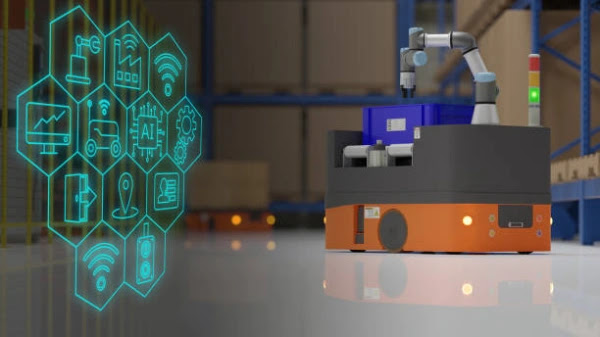Featured
- Get link
- X
- Other Apps
Ethical Considerations
Smart Technology Development
Introduction:
The rapid advancement of smart technology has brought about
transformative changes in various aspects of society, from healthcare and
transportation to education and entertainment. While these innovations offer
numerous benefits, they also raise significant ethical considerations that must
be addressed to ensure responsible development and deployment. This article
explores the ethical implications of smart technology development, including
issues related to privacy, security, bias, autonomy, and accountability, and
examines strategies for addressing these challenges.
Privacy and Data Protection:
One of the foremost ethical concerns in smart technology
development is the protection of individuals' privacy and personal data. Smart
devices and systems often collect vast amounts of data about users' behaviors,
preferences, and activities, raising concerns about unauthorized access, data
breaches, and misuse of sensitive information. Ethical considerations in this
area include:
- Informed consent: Developers must
obtain informed consent from users before collecting, processing, or
sharing their personal data, ensuring transparency and accountability in
data practices.
- Data minimization: Developers
should collect only the minimum amount of data necessary to fulfill the
intended purpose, limiting the risk of privacy violations and unauthorized
access.
- Data anonymization: Developers
should anonymize or pseudonymize personal data to protect user privacy and
prevent the identification of individuals from aggregated datasets.
- Security measures: Developers must
implement robust security measures, such as encryption, authentication,
and access controls, to safeguard personal data from unauthorized access,
data breaches, and cyberattacks.
Bias and Discrimination:
Smart technologies are susceptible to bias and
discrimination, which can perpetuate existing inequalities and reinforce
social, economic, and cultural biases. Ethical considerations in this area
include:
- Fairness and transparency:
Developers must ensure that smart algorithms and systems are fair,
transparent, and accountable, avoiding bias in data collection,
processing, and decision-making processes.
- Diversity and inclusivity:
Developers should promote diversity and inclusivity in the design and
development of smart technologies, considering the needs, perspectives,
and experiences of diverse user groups to mitigate biases and ensure
equitable outcomes.
- Bias detection and mitigation:
Developers should employ techniques such as bias detection algorithms,
fairness metrics, and model explainability tools to identify and mitigate
biases in smart systems and algorithms.
Autonomy and Agency:
Smart technologies have the potential to influence and shape
human behavior, raising ethical concerns about autonomy, free will, and
individual agency. Ethical considerations in this area include:
- User empowerment: Developers
should empower users to make informed choices and decisions about their
use of smart technologies, providing them with control, transparency, and
autonomy over their personal data and digital experiences.
- Ethical design principles:
Developers should adhere to ethical design principles, such as
user-centered design, privacy by design, and human-computer interaction
principles, to prioritize user autonomy and agency in the design and
development of smart technologies.
- User education and awareness: Developers
should educate users about the potential risks and implications of smart
technologies, promoting digital literacy, critical thinking, and
responsible use practices to empower users to navigate complex ethical
dilemmas and make ethical choices.
Accountability and Governance:
Smart technology development raises questions about
accountability, responsibility, and liability for the actions and decisions of
autonomous systems and intelligent algorithms. Ethical considerations in this
area include:
- Regulatory oversight: Governments
and regulatory bodies should establish clear guidelines, standards, and
regulations for the responsible development and deployment of smart
technologies, ensuring accountability, transparency, and compliance with
ethical principles and legal requirements.
- Ethical frameworks: Developers
should adopt ethical frameworks and codes of conduct that guide ethical
decision-making and behavior in smart technology development, fostering a
culture of responsibility, integrity, and ethical leadership within the
industry.
- Stakeholder engagement: Developers
should engage with stakeholders, including users, policymakers, ethicists,
and advocacy groups, to solicit feedback, address concerns, and promote
dialogue on ethical issues in smart technology development.
- Ethical risk assessment:
Developers should conduct ethical risk assessments to identify and
evaluate potential ethical risks, harms, and unintended consequences
associated with smart technologies, informing decision-making and risk
mitigation strategies throughout the development lifecycle.
Environmental and Societal Impact:
Smart technology development has broader societal and
environmental implications, including concerns about resource consumption,
environmental sustainability, and social impact. Ethical considerations in this
area include:
- Environmental sustainability: Developers
should consider the environmental impact of smart technologies, including
energy consumption, electronic waste, and carbon emissions, and prioritize
sustainable design practices, such as energy efficiency, recyclability,
and lifecycle management.
- Social responsibility: Developers
should consider the social impact of smart technologies on individuals,
communities, and society as a whole, addressing issues such as digital
divide, social inequality, and access to technology, and promoting
inclusive, equitable, and socially responsible solutions.
- Ethical supply chain management:
Developers should ensure ethical supply chain management practices,
including responsible sourcing of materials, labor rights, and
environmental stewardship, to minimize the negative impact of smart
technology development on people and the planet.
Conclusion:
Ethical considerations are paramount in smart technology
development to ensure responsible innovation, protect user rights, and promote
ethical use practices. By addressing issues such as privacy, security, bias,
autonomy, accountability, and societal impact, developers can mitigate ethical
risks and build trust, transparency, and integrity in smart technologies.
Collaboration among stakeholders, including developers, policymakers,
researchers, ethicists, and users, is essential to navigate complex ethical
dilemmas, foster ethical awareness and education, and promote ethical
decision-making in smart technology development. Ultimately, by upholding
ethical principles and values, developers can harness the potential of smart
technologies to create positive social, economic, and environmental impacts and
advance the collective well-being of humanity.
- Get link
- X
- Other Apps


